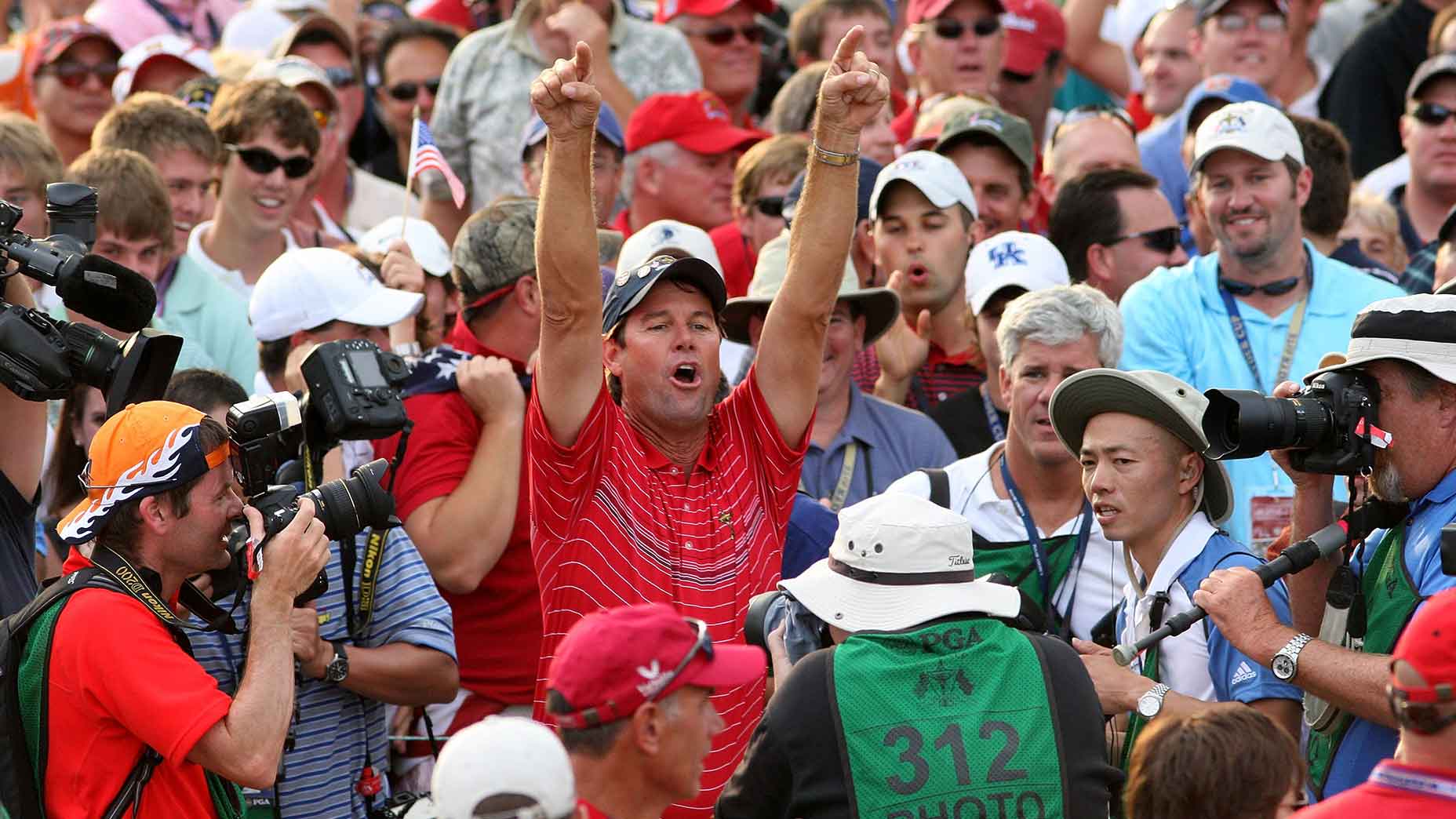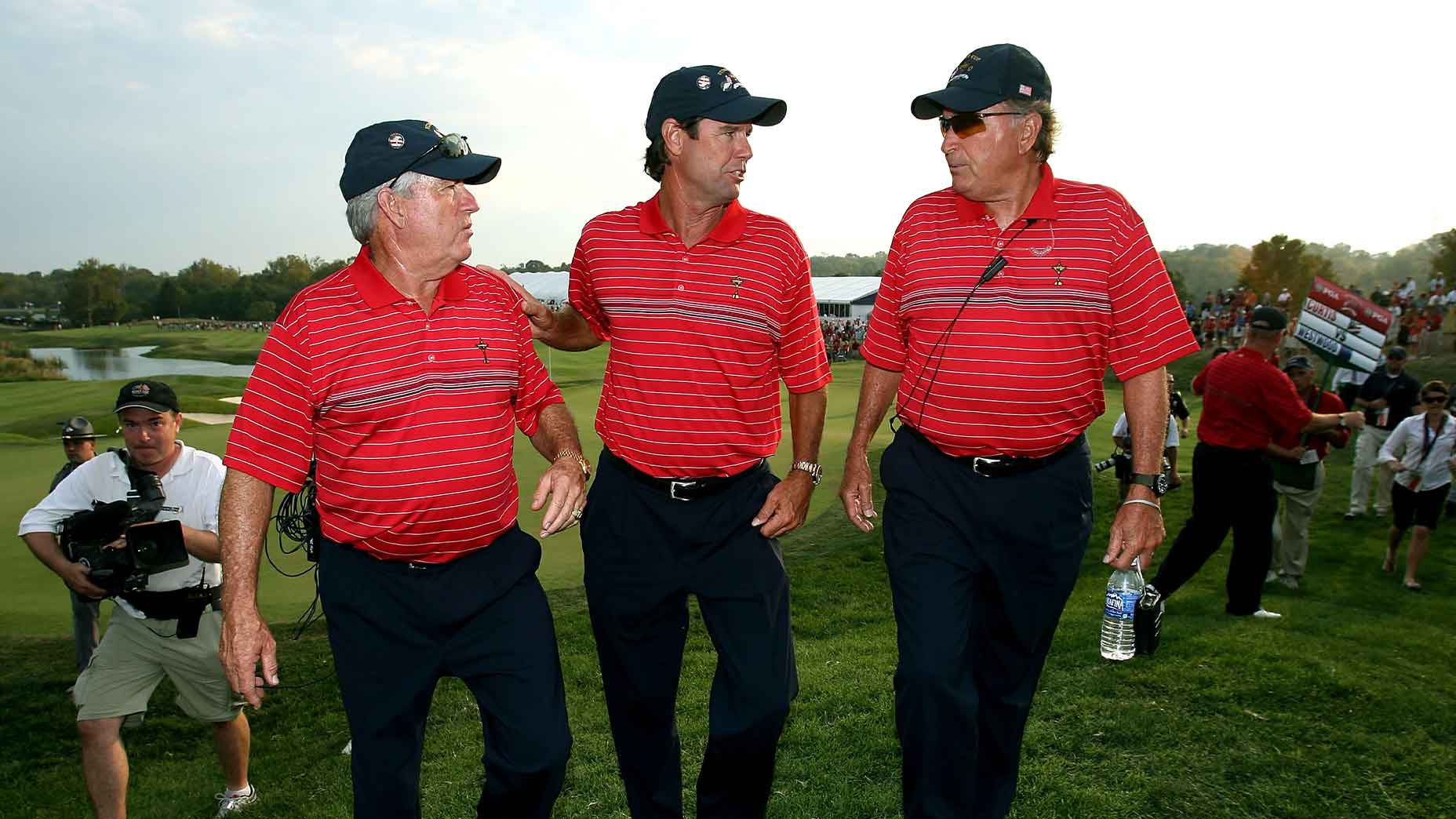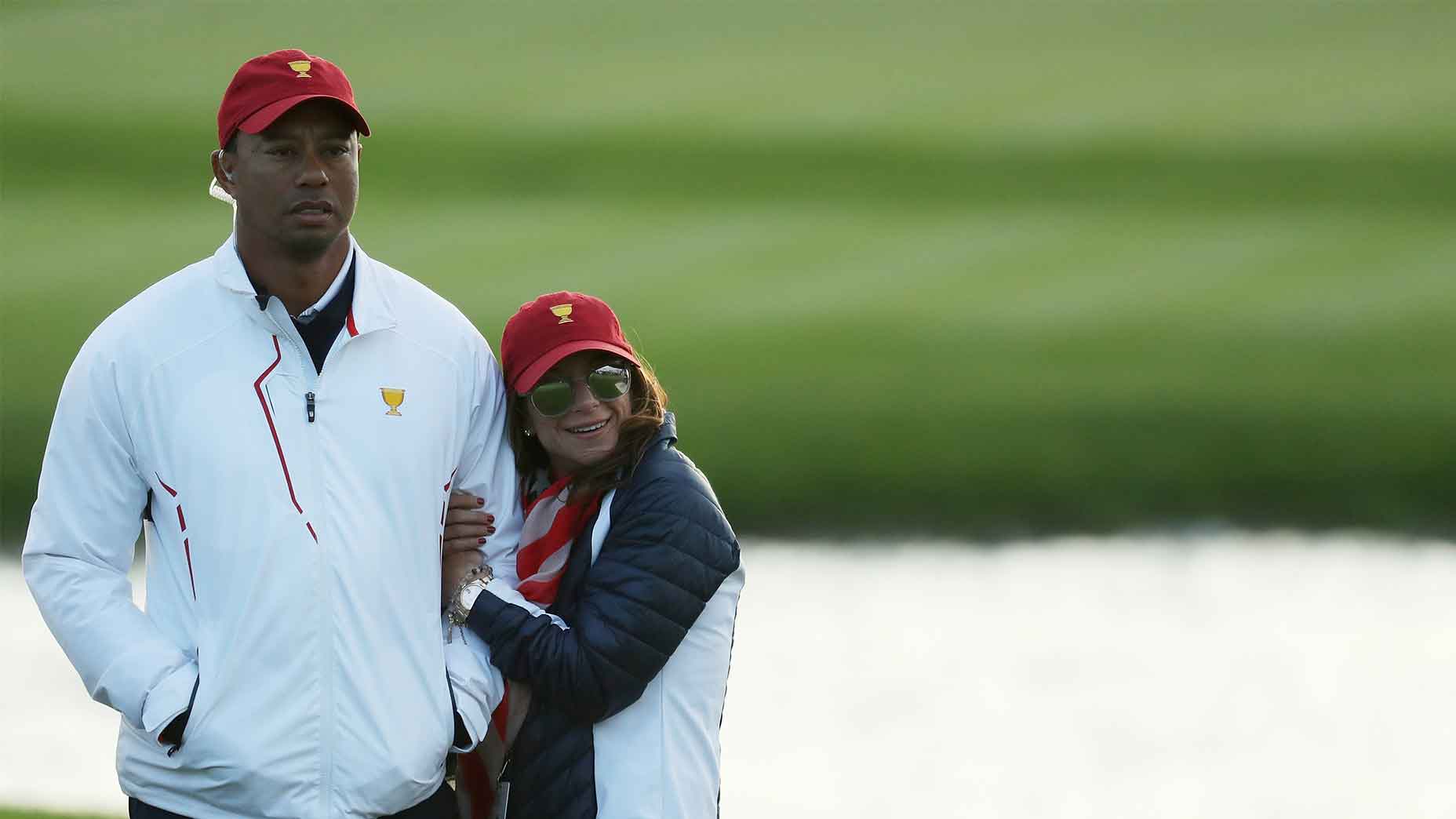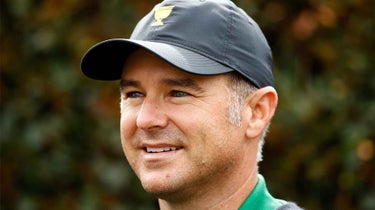
Paul Azinger sits on the Mt. Rushmore of most famous U.S. team captains.
Getty Images
It’s a warm Monday morning in September and Paul Azinger is in his happy place. He’s alone, sitting in a 400-square-foot hut beneath a television and above the saltwater. There’s a fishing pole in his hand and the only worry in his world, it seems, is catching a redfish before the sun grows too hot.
In other words, it’s the perfect time for Azinger to step into the past.
“Hardly anybody even knows this,” he starts. “But when the first ever Presidents Cup happened, a lot of the work of the captaincy wound up falling right into my lap.”
Azinger’s phone rang. It was early 1994, and he was in Inglewood, Calif., where he’d spent the previous months receiving treatment for lymphoma. Hale Irwin, Azinger’s good friend and longtime playing partner, was on the line.
Later that year, Irwin told Azinger, he was slated to be the captain of the American team at a new Ryder Cup-style match-play event called “The Presidents Cup.” Irwin needed to pick an assistant captain, and because he was in the running to be the event’s first-ever playing captain, he needed to be sure the assistant was someone he could trust. Irwin wondered, would Zinger be game?
“I had just gotten off being sick with cancer and it was just the greatest gesture,” Azinger said. “I love Hale for that. For me to be able to get back in that team room and be able to get in there with all the players, you know, it was just awesome.”
A few months later, Azinger and Irwin were together at Robert Trent Jones Golf Club, in Virginia, captaining the U.S. team to a comfortable victory at the inaugural Presidents Cup.
“I felt like I was in charge that week,” he said. “Knowing which shots players had on par-3s ahead of the groups coming up so they could know the club. I was playing into the mechanics of what was going on during the matches. A few encouraging words maybe, here and there.”
Azinger was hooked, and by the time he was asked to captain a team of his own at the 2008 Ryder Cup, he was filled with bold new ideas about how to improve team golf for the better in the United States. Of course, you know the rest — the Americans hammered the Europeans at Valhalla, ending an eight-year streak of European dominance by utilizing Azinger’s innovative new system.
But as Azinger looks back now at some three decades of experience competing under the American flag, he sees his successes as indicative of some broader truths about team golf. Ahead of this week’s Presidents Cup (which he will help broadcast for NBC Sports), he agreed to share some of some of his lessons from along the way.
Paul Azinger’s rules for captaining a U.S. team
1. Pick the right players (or build a system that does it for you)
It sounds simple, but it ain’t. There are endless factors that can impact the qualification process, not the least of which are the rules set forth by the individuals choosing the teams.
In ’08, Azinger transitioned the Ryder Cup selection process into a points-based system, amplifying the importance of strong performers in golf’s biggest and highest-paying events.
“The money and the majors were double [points value], because I felt like players only choked for those two things,” he says with a laugh. “I mean, there’s nothing else to choke for other than cash and prestige. I felt like the majors had the most of both.”
Today, the Presidents Cup and Ryder Cup teams rely upon a combination of points gained and “captain’s selections” — allowing leadership a greater say over who remains on each team.
“Now,” Azinger says, “the United States gets the best 12 players every time.”

Paul Azinger reformed much of the way we view team golf today.
Getty Images
2. Build a winning environment
Team environments are foreign environments for golfers, some of whom have never competed on a team in their life. It’s the captain’s job to ensure the environment feels familiar. Happy players will make for confident ones, and confident players play good golf.
“The captain has to take care of all the minutia, so the player doesn’t have to think about anything but the game and the golf,” Azinger says. “The team room is a relaxing environment.”
If you’ve done it right, Azinger says, you’ll know pretty quickly.
“I’ve been on a bunch of teams and in the room,” he said. “On the best ones, we laugh and we get up and tell rain-delay stories and play Ping-Pong. And we got a temper-tantrum stories, we got bad-break stories, worst-bounce stories. It’s just guys hanging out.”
3. Bleed over the details
No factor is worth overlooking. None. When Azinger captained the Americans, he kept close tabs on everything from the apparel designs down to the dinner menu.
Azinger obsessed over the details in the months leading up to the tournament so that by the time the tournament rolled around, he didn’t have to.
“We asked every player, what are your three most favorite meals?” Azinger said. “And every night, one of every player’s three most favorite meals was on the table. Some nights there was a bunch of stuff out.”
The result?
“I never thought about food once during the week.”
4. Choose your words wisely
There was only one time that Azinger addressed the 2008 U.S. Ryder Cup team in full, and it came before the competition had even started.
“It was day one,” he remembers. “I told them we were doing something different.”
Azinger told the team that he’d decided to experiment with a new strategy: The team would be divided into “pods” of four, and those groups would be responsible for governing themselves and their performance.
From then on, Azinger never spoke to the team in full again — even as they carried a precarious 9-7 lead into Sunday’s singles matches.
“I laid in bed Saturday night and I looked at my wife and said, ‘My gosh, I forgot to say anything to them.’ And she said, ‘Don’t worry about it. They’re ready.’”
All these years later, Azinger says there’s something to be learned from that story.
“The captain has to get his guys prepared, and has to get the right players together,” he says. “Then I think inevitably you have to kind of get out of the way. It’s not about you, it’s really about the environment in the room.”
5. Don’t be afraid to bench players
There are hard decisions about who to play and who not to play — and then there are easy ones.
“You don’t have to play everyone,” he said. “If you’re worried about someone, you can sit them [in the early-week sessions].”
6. Have a solid support team
This is team-golf advice as much as it is life advice.
“My wife, she was incredible,” Azinger said. “I never mentioned her ever in anything about the Ryder Cup but she was awesome for me. She was awesome for the team and the team room and it made a big difference.”
7. Be a master of communication
If you’ve watched team golf, you have no doubt noticed the earpieces worn by captain’s staff. What goes over the radio on match days?
“The business of the radio is to stay updated,” he says. “If I’m standing with the last group, watching them and there’s four matches out I’ll get an update from match three, or I’ll get an update from match one.”
But the business of the radio isn’t always the reality of the radio.
“As soon as there’s a cheer, you’ll hear someone screaming. At a Ryder or a Presidents Cup, that’s what it’s about. ‘He made it!! Birdie!!!’ or ‘Oh, no! We got screwed!’”

Earpieces are an important — if understated — piece of the captainship puzzle.
Getty Images
8. Be a master of people
Azinger’s pod system famously leaned on personality tests to help segment players. It was an essential piece of the U.S. team formula in 2008, but it was far from the only way Azinger tried to streamline the human element of the competition.
In one particularly controversial move, he removed the Saturday night gift ceremony from the U.S. team’s schedule, insisting that players were better served competitively if they received a trophy after the completion of play.
“On Saturday night, there was none of that ‘how much we love each other now,’ and all that garbage. That’s the worst — the Saturday night Kumbaya. It was probably the worst way ever to prepare for a Sunday final match. [The Europeans] are calling on the ghost of Seve [Ballesteros]. And we’re over here handing out crystal and watches.”
Some members of the U.S. team’s orbit were unsettled by the decision, which unseated one of the team’s old traditions. Azinger was ready for the heat.
“I remember I had a couple of wives come up to him and say, ‘Hey, we haven’t done a gift-giving yet,” Azinger said. “I said, ‘Yeah, we’re not gonna do that this year. We’re gonna do that tomorrow night, on Sunday night.’”
9. Embrace the uncertainty
Eventually, finally, play will begin, and the outcome will be entirely out of the captain’s hands. Good captains will understand this reality, but great ones will learn to thrive within it.
“Once the bell rings, the captain kind of has to stay out of the way,” Azinger said. “Yeah, I think you can overdo it. You can overdo everything.”










